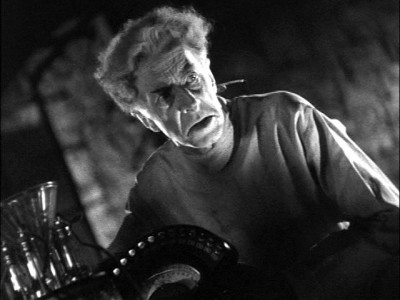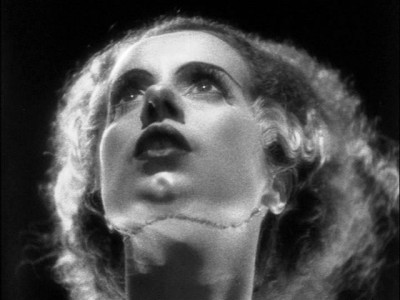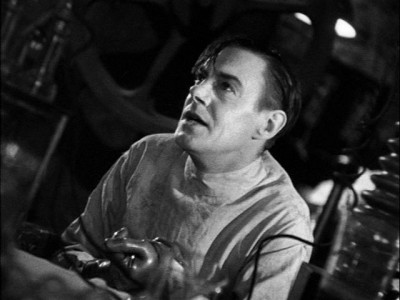
July 22 is James Whale’s 123rd birthday, and while he won’t be on hand to celebrate — except possibly in spirit — the Thursday Horror Picture Show marks the occasion a few days early with a screening of the film most people cite as his masterpiece, Bride of Frankenstein (1935), the movie that turned out to be his final horror picture. Article after article has been written about the film — including a couple by me — to a point where it almost seems as if nothing more could possibly be said about Bride of Frankenstein. I don’t for a moment believe that to be the case, though. No film this rich, this densely layered, this open to interpretation will ever be fully exhausted by analysis. Just when you think it must surely be written out, someone will find another way into its mysteries. Just when you think you’ve seen it so many times that it couldn’t have anything else to reveal to you, something catches you in a different way than it previously had. That’s one of the great mysteries of the relationship between a work of art and the person who’s looking at it. In the case of Whale’s filmography, I’d say that kind of mysterious interaction is apt to happen with at least nine of his movies, but none more so than with Bride of Frankenstein.

Rather than go into another reading of the film (I’ll include the link to my review from about two years ago), I find myself thinking more about the overall impact Whale’s films had on shaping the way I approached movies from a very early age. Like a great many people of my generation, I’m a product of watching old horror movies on TV as a child. This was a largely indiscriminate process, which is to say that we simply watched whatever movies were showing. There were no guides to this apart from what was written in TV Guide and, in those days, what was written there was generally dismissive. Horror wasn’t even recognized as a genre. The films were always listed as “melodrama,” and — more often than not — the word “lurid” would find its way into the description. No one was there to help us distinguish between the first (and more serious) wave of horror pictures and the second (and more juvenile) one. We were just as likely to find a truly great film like this one paired with a movie that didn’t even qualify as mediocre — like Captive Wild Woman (1943). (You may think that a title like that ought to have offered some clue, but remember you’re dealing with 10-12-year-old children.)

It didn’t take long, of course, to start noticing that all horror movies were not created equal. But why some were better than others didn’t immediately fall into place — in part because it took a certain amount of repeated viewings. James Whale’s films — and at the time that meant Frankenstein (1931), The Invisible Man (1933) and Bride of Frankenstein — were the first ones that stood out because of the name of the director. That may in part have been because his name is displayed in a manner to draw attention to itself on the latter two. But the fact is that even an unschooled kid could tell that these movies were different from all the others — and different in ways that made them like one another. It then became obvious in some dim way that this director person was somehow responsible for these differences and similarities. In a very real sense, James Whale marked my first significant glimmer of understanding how movies were made. It would be some time before this started to come together in a unified form, but it was a start. And, to this day, Whale’s work remains a cornerstone of my approach to movies all these years later.
http://www.mountainx.com/movies/review/bride_of_frankenstein



Before you comment
The comments section is here to provide a platform for civil dialogue on the issues we face together as a local community. Xpress is committed to offering this platform for all voices, but when the tone of the discussion gets nasty or strays off topic, we believe many people choose not to participate. Xpress editors are determined to moderate comments to ensure a constructive interchange is maintained. All comments judged not to be in keeping with the spirit of civil discourse will be removed and repeat violators will be banned. See here for our terms of service. Thank you for being part of this effort to promote respectful discussion.